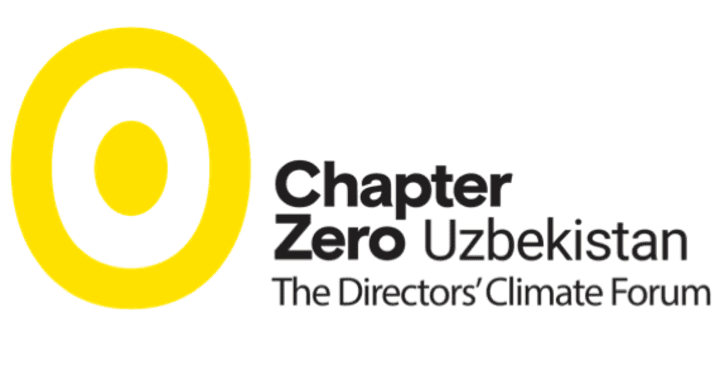Uzbekistan ratified the Kyoto Protocol to the United Nations Framework Convention on Climate Change in 1999.1 Following that, in October 2018, Uzbekistan ratified the Paris Agreement (Paris, 12 December 2015).2 To ensure the implementation of the Paris Agreement commitments and the transition of the Republic of Uzbekistan to the "green" economy two fundamental Presidential resolutions have been passed during 2019-2022.3
Resolution No. PP-4477 dated 4 October 2019 approved a strategy for Uzbekistan’s transition to the "green" economy for the period 2019-2030 and set a few objectives as follows:
- improving the energy efficiency of the economy;
- rational use of natural resources through technological modernisation and its financing;
- state support for the implementation of pilot projects in transition to the "green" economy;
From the institutional point of view an Interdepartmental Council was established to coordinate and control the state bodies involved in implementation of the strategy.
Resolution No. PP-436 dated 2 December 2022 approved a comprehensive action plan until 2030, which envisaged to:
- reduce specific greenhouse gas emissions;
- increase the production capacity of renewable energy sources;
- improve industrial energy efficiency;
- improve the efficiency of water use;
- expand green areas in urban areas, etc.
In May 2023 the Ministry of Natural Resources has been renamed the Ministry of Ecology, Environment and Climate Change as a result of adoption of Decree No. UP-81.4 The Ministry, together with the Prosecutor General's Office and the Interior Ministry, has been tasked with drafting legislation and submitting it to the Cabinet of Ministers by 1 September 2023 providing among others for:
- classification of environmental crimes into the category of grave crimes;
- increasing fines imposed on the felling of valuable species of trees;
- increasing fines imposed on pollution or littering of waters by a factor of 5.
Also, companies have been classified into categories from I - IV based on their environmental impact. The decree requires them to install automated substations to monitor emissions, high efficiency dust and gas purification devices, and water treatment facilities. To encourage this process, certain incentives are provided, such as financial credits, deferred payment of pollution and waste disposal compensation. Conversely those who do not install the required equipment will obtain a fivefold increase in the amount of pollution compensation for which they may be liable. Small enterprises will receive compensation to cover part of the interest on credits.
Director's Duties and Climate Change
The most common types of commercial organisations in the Republic of Uzbekistan are a limited liability company (LLC) and a joint stock company (JSC).5
Director’s duties are set out in the following legislation:
- Civil Code of Uzbekistan approved by Law No. 163-I of 21 December 1995;
- Law No. 310-II as of 06 December 2001 "On limited and additional liability companies";
- Law No. 223-I as of 26 April 1996 "On joint stock companies and protection of shareholders' rights" (JSC Law).
Fiduciary duties of directors are summarized as follows:6
- duty to act in the best interests of the company;
- duty to act in good faith;
- duty to act reasonably.
Although there is no expansive interpretation of a director's fiduciary duties under the Uzbek legislation, it is possible to say that сonsideration of the risks associated with climate change is consistent with abovementioned duties. Directors are expected to prioritize the company's success and the benefits of its shareholders and to exercise due care, skills, and diligence in carrying out their responsibilities. Directors should not use their position for personal gain or engage in any fraudulent, dishonest, or unethical conduct that may harm the company or its shareholders. Therefore, directors are expected to make informed decisions and exercise prudence in managing the affairs of the company. Climate change presents a range of physical and transition risks that can affect various aspects of a company's operations, supply chains, assets, and financial performance. By considering and addressing these risks, directors can protect the interests of shareholders and enhance the long-term resilience and sustainability of the company.
Furthermore, exploring the opportunities presented by climate change, such as renewable energy investments, energy efficiency improvements, and sustainable business practices, can lead to competitive advantages, cost savings, and new revenue streams. Directors who actively identify and capitalize on these opportunities demonstrate their commitment to creating long-term value for the company and its shareholders.
At the same time, if a company’s activities contribute to environmental damage or fail to adequately address climate-related risks, there is the potential for legal liabilities to arise. While there may not be specific duties for directors on climate change under the Uzbek legislation, companies that contribute to environmental damage can still be held liable for their actions. Law No. 754-XII as of 9 December 1992 "On the protection of nature", the Code of Administrative Liability7 and the Criminal Code8 govern environmental protection, pollution control and other aspects related to climate change. Directors of companies who do not comply with these laws or harm the environment can face legal consequences, such as fines, penalties, or injunctions.
Besides legislation, the Corporate Governance Code9 adopted in Uzbekistan prescribe JSCs to develop the Regulations on the Procedure for actions in case of conflict of interest, including the obligations of JSC directors to act in the interests of the JSC.
Indeed, the consideration of financial risks associated with climate change is becoming increasingly important for directors in fulfilling their fiduciary duties. Directors have a responsibility to act in the best interest of the company, which includes identifying and managing risks that could affect the company’s financial performance and long-term sustainability. Ignoring climate-related risks could potentially expose the company to financial harm, reputational damage, or legal liabilities.
Directors' Disclosure Obligations and Climate Change
From 10 November 2022, JSCs are required to disclose information in the media through:
- posting on the Unified Portal for Corporate Information and its official website,
- providing reports, information, and other information.10
Law "On Securities Market" sets out disclosure requirements for publicly traded companies - JSCs. This Law requires the directors to comply with financial reporting rules and standards in preparation and fair presentation of the company's financial statements as and when they fall due.
Directors are required to disclose information about the company that could affect the price of the company's securities on the financial markets. This may include financial results, strategic plans, changes in management, material transactions, litigation and other information that may be helpful to investors in deciding whether to buy or sell the company's shares. Therefore, even though the Securities Market Reporting and Disclosure Rules11 do not require directors to disclose information about climate change, significant risks such as environmental disasters, changes to legislation regarding greenhouse gas emissions in the context of climate change may have a significant impact on the financial performance and long-term viability of the company. Directors may need to disclose material climate risks to enable shareholders to make informed decisions.
In general, directors' duties to disclose material climate change risks are consistent with the general requirements of the Law "On Securities Market" and their duties to act in the best interests of the company and its shareholders.
Practical implications for Directors
Given the increasing focus on climate change issues by the Uzbek state, as well as the adoption of a big volume of legislation regulating the obligations and liabilities of companies associated to some extent with climate change, it is advisable to consider the following practical steps for companies incorporated in Uzbekistan to reduce the possibility of likelihood breach of obligations, including on information disclosure. Well-counselled boards should:
- follow the recommendations of international organisations such as the International Organization of Securities Commissions (IOSCO) or Task Force on Climate-Related Financial Disclosures (TCFD). These recommendations may provide guidance on climate risk disclosure;
- develop a disclosure policy that will define procedures, responsibilities, and controls to ensure compliance with disclosure obligations;
- carry out a climate risk assessment of company's operations which will help identify the key risks and opportunities associated with climate change and establish appropriate measures to manage them; and
- ensure that directors and other concerned company staff are trained on disclosure requirements and are aware of their responsibilities.
Contributors:
- Eldor Mannopov, Dentons
- Mansurkhon Kamalov, Dentons
 |  |
